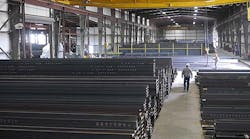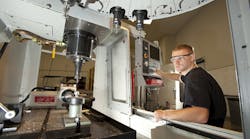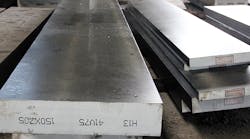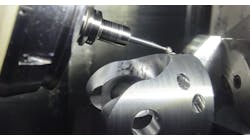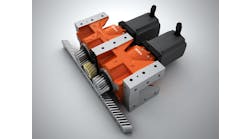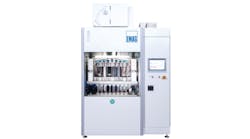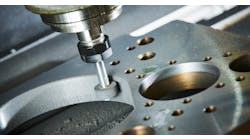Trade groups representing two of the largest steel-consuming segments of U.S. manufacturing are urging the Trump administration to "take a deliberative approach" in investigating the issue of unfair trade in steel products. The National Tooling and Machining Assn. (NTMA) and the Precision Metalforming Assn. (PMA) warned that unilateral steel tariffs or import quotas could damage the activities and business prospects for their member companies.
Specifically, NTMA and PMA called on federal trade regulators to take a “targeted approach rather than unilateral action” and avoid shifting “the injury from one industry to another without considering the impact on the broader economy and the defense industry supply chain.”
The U.S. Dept. of Commerce is investigating domestic steelmakers’ complaints of dumping by foreign competitors, principally Chinese steel producers. The “Section 232” investigation followed an April decision by the federal International Trade Commission in favor of a request by U.S. Steel Corp. and other domestic producers to investigate claims that Chinese steelmakers colluded to fix prices, below U.S. market levels.
U.S. Commerce Secretary Wilbur Ross (a former steel-industry chairman and CEO) noted that Chinese steel imports have increased recently, "despite repeated Chinese claims that they were going to reduce their steel capacity. It’s a very serious impact upon the domestic industry.”
Section 232 is a part of the 1962 Trade Expansion Act that authorizes the Commerce Secretary to conduct comprehensive investigations to determine the effects of imports of any article on the national security of the United States. The provision has been used several times to investigate “dumping” charges raised by domestic manufacturers against foreign competitors.
The NTMA and PMA warning was contained in comments they filed in behalf of nearly 2,500 small and medium-sized machine shops, metalforming, tool-and-die, machining, and stamping companies.
“Our highest operating expense is often purchasing raw materials – steel or other flat-rolled metal, which amounts to 50-70% of costs,” wrote NTMA president Dave Tilstone and PMA president Roy Hardy. “Over the past decade, our members have found their foreign competitors often supplying metal components, assemblies, or finished products cheaper than the cost of our raw materials alone. It is essential that our industry has access to globally competitive supplies of steel.”
NTMA and PMA contend that “thousands metal-stamping companies went out of business as a direct result of the Section 201, 30% steel tariffs imposed by the U.S. government in 2002.”
Section 201 refers to a section of the federal Trade Act of 1974 that permits the President to grant temporary import relief, by raising import duties or imposing nontariff barriers on imports. In 2002, former President George W. Bush used Section 201 to impose tariffs on steel imports. “At that time,” according to the two trade groups, “steel consuming companies employed 12 million Americans compared to less than 200,000 by steel producing companies, and the ratio has changed little since that time.”
The point made by Tilstone and Hardy is that the government should consider how to support the millions of downstream jobs at manufacturers of tools, dies, and other products.
